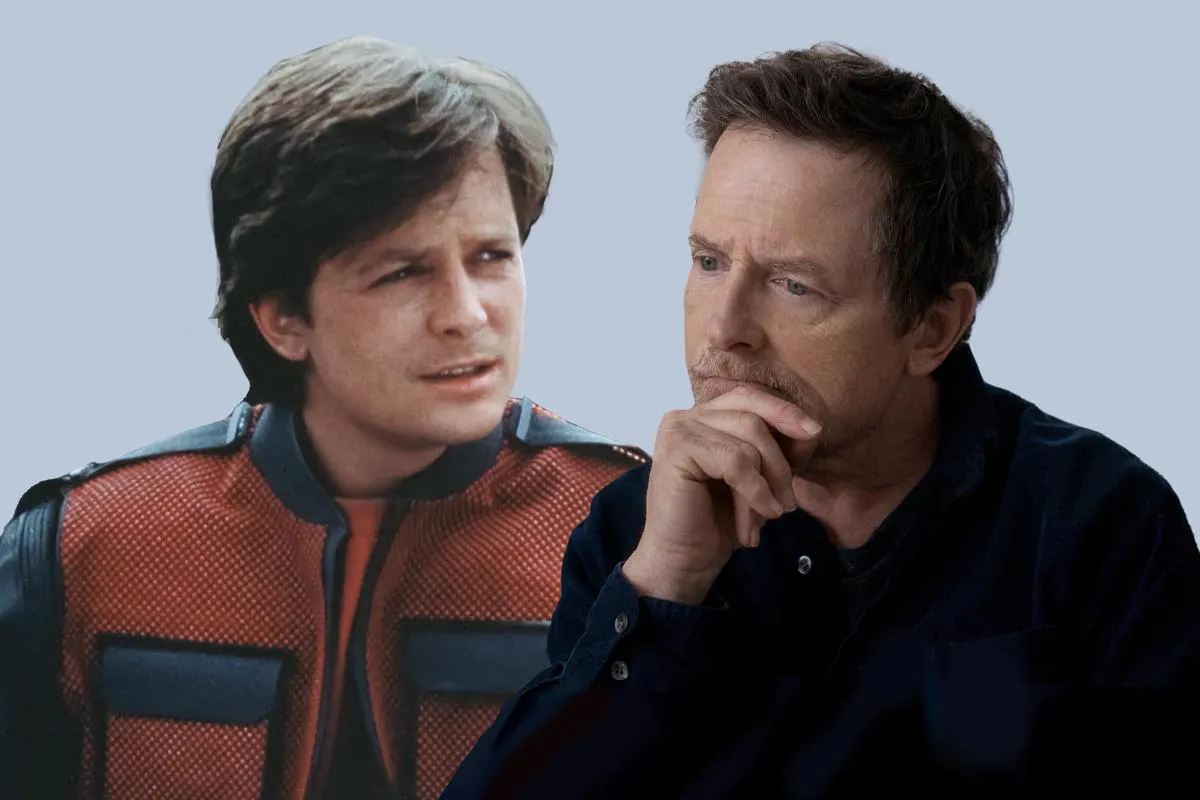
Michael J. Fox is still a legend.
Fox himself, with typical Canadian self-deprecation, might choose a different word, but when you’re face to face with the man — even via computer screen — you can’t help but feel the weight of his long, celebrated career.
Which brings us to “Still: A Michael J. Fox Movie,” the reason for our chat.
The documentary is an engaging, entertaining sprint through Fox’s life story, from precocious kid in Northern Ontario to high school drama nerd in Burnaby, B.C.; from struggling Hollywood actor in his late teens to 20-something TV and movie star; from his Parkinson’s disease diagnosis at age 29 to being the face of the search for a cure at 61.
Directed by Oscar winner Davis Guggenheim, the doc has won raves since it made its world premiere in January at the Sundance Film Festival. It has its Canadian premiere Monday at the Hot Docs Festival and starts streaming on Apple TV Plus on May 12.
“It’s fun, this movie. It’s a nice adventure,” Fox said, adding, “I didn’t plan on this.”
The title was Guggenheim’s idea, although it’s based on something Fox often said in interviews about his 2020 memoir, “No Time Like the Future”: “I would say, ‘I couldn’t be still till I couldn’t be still,’” said Fox, referring to both his hard-charging pursuit of a career and the tremors that are part of his disease. “And he took that and put in this great double meaning thing, which I like a lot.”
“It’s still another Michael J. Fox movie, like a kind of familiarity.”
That familiarity kicked off in 1982 when Fox won the role of conservative high school student Alex P. Keaton in the sitcom “Family Ties.” He was still playing Alex when he was cast in the 1985 movie “Back to the Future,” which Steven Spielberg was producing.
In “Still,” Fox recounts the punishing routine of shooting “Family Ties” by day and “Back to the Future” by night, usually until just before sunrise; surviving for three and a half months on two to three hours’ sleep a night and whatever he could catch while being driven from his apartment to the Paramount studio, then to the movie location and back to his apartment.
Given his confusion and exhaustion, Fox wondered, as he says in “Still,” “How could any of this s–t be any good?”
But “Back to the Future” became a smash hit and shot Fox into the celebrity stratosphere. Lots more movies followed, including two “Back to the Future” sequels.
Already a three-time Emmy winner for “Family Ties,” Fox had another Emmy-winning success with “Spin City,” made in part while he was keeping his 1991 Parkinson’s diagnosis a secret. (During the interview, some of his five Emmy Awards were visible among other trophies on shelves in his Manhattan apartment.)
Until he announced his retirement from acting in 2020, Fox was still playing Emmy-nominated (and winning) guest roles in shows like “The Good Wife,” “Curb Your Enthusiasm” and “Rescue Me.”
But these days, he is less interested in resting on those Hollywood laurels than leaning into his role as part of a community of people with Parkinson’s disease.
“People often say to me, ‘Do you take pride in what you’ve done?’ And I can’t say that I ever really do that, you know. There’s no time for that,” he said.
What he does find “really gratifying” is that the profile of Parkinson’s disease has been raised to the point that “some lady is (going out) shopping today who wouldn’t have gone out 20 years ago shopping” because of fear her Parkinson’s symptoms would be interpreted as signs of drug or alcohol impairment.
Mind you, when Fox first revealed his own diagnosis — in a 1998 Barbara Walters interview and People magazine article — he had immediate regrets.
“The New York Post and the Daily News land on my doorstep, and they say ‘Michael J. Fox has Parkinson’s and (it’s) the end of his career and his life,’ and I thought ‘What have I done?’” he recalled. “I was under siege.”
But then he learned that there was a community of Parkinson’s patients online and “that particular weekend they were talking about me. And what they were saying, which I really thought was interesting, was, ‘Yay! Good. It’s good that Michael J. Fox has Parkinson’s, now things are gonna get done.’”
Things have in fact got done since then. The Michael J. Fox Foundation for Parkinson’s Research has funded more than $1 billion (U.S.) in programs, according to its website, and announced earlier this month that a biomarker for Parkinson’s had been found.
“It is essentially finding a way that maybe in five, 10 years that something as simple as a nasal swab will tell you whether you have Parkinson’s,” Fox said, which in turn could lead to new drugs to treat the disease.
“And that’s because people in the Parkinson’s community … they stepped up, they had spinal taps. And those in the community who couldn’t have spinal taps because they’re too far along, their family got spinal taps and, I mean, tremendous sacrifices (were made): that hurts,” he said of the procedure.
“(Parkinson’s) has been a gift for me. And as I say, it’s a gift that keeps on taking,” he added wryly.
So yes, humour is still — there’s that word again — very much a part of Fox’s arsenal. Self-pity not so much.
When Guggenheim first approached Fox about making the documentary, “I really appreciated that he didn’t see it as a chance to kind of do something exploitative based on somebody’s tragedy, but he got that that’s far from where I live, far from how I think. And I knew it was gonna be OK.”
It’s not that Fox passes himself off as some kind of superman. The film is frank about the physical toll that Parkinson’s takes: frequent falls, some resulting in broken bones, and intense pain. And Fox is quick to give a lot of the credit for managing the disease to his wife of almost 35 years, fellow actor Tracy Pollan, whom he met on the set of “Family Ties.”
But Fox also describes himself as “a tough son of a bitch.”
Asked where that toughness comes from, Fox credited his parents, noting they were born into the Great Depression and came of age during the Second World War. His father, William, a Canadian Forces veteran and police dispatcher, died in 1990. His mother Phyllis, a payroll clerk, died just last September at 92.
“They were very family-oriented people, very, very close knit … they were great people and generous people and community-minded people, but they were tough sons of bitches, too. They got it done,” Fox said.
They were also courageous, I suggested, considering they let Fox drop out of high school and move to Hollywood when he was still a teenager.
“I was a strange kid,” said Fox. “I had all these strange interests and my father considered anybody who was in the arts a hippie. And the last thing you wanted to be was a hippie. But I was a hippie, I’m still a hippie. And when I told him what I wanted to do, he really surprised me.”
Fox was convinced his dad would consider his quest “a fool’s errand,” but “he sat back and said, ‘Well, if you’re gonna be a lumberjack you might as well go to the goddamn forest’ and that was it. He drove me down, found an agent, set me up as best he could. But, I mean, it was stupid, it was really dumb. The whole thing was crazy.
“And that’s what I love about the movie is it repeats these themes of ridiculous goals and ridiculous ventures.”
With “Still: A Michael J. Fox Movie,” he said, “I think basically I wanted to tell a story about that human experience and one that everybody could relate to.”
He added: “I’ve been changing things in my life all the way along (from) being a kid who wanted to go to California … I think the reason I said I’m a tough son of a bitch is because that’s what it came down to, like, if you don’t like to get dirty and get hurt on some level, don’t do it. But I followed the dream all the way along, a series of dreams. I dreamed of a career, I dreamed of a family and a life that was in many ways … based on the same foundation and the same principles that my parents brought to raising us,” he said.
JOIN THE CONVERSATION
does not endorse these opinions.







:format(webp)/https://www.thestar.com/content/dam/thestar/entertainment/movies/2023/04/29/still-michael-j-fox-actor-says-documentary-about-his-eventful-life-has-been-a-nice-adventure/michael_j_fox_barbara_walters.jpg)
:format(webp)/https://www.thestar.com/content/dam/thestar/entertainment/movies/2023/04/29/still-michael-j-fox-actor-says-documentary-about-his-eventful-life-has-been-a-nice-adventure/michael_j_fox_tracy_pollan.jpg)
:format(webp)/https://www.thestar.com/content/dam/thestar/entertainment/movies/2023/04/29/still-michael-j-fox-actor-says-documentary-about-his-eventful-life-has-been-a-nice-adventure/michael_j_fox_in_still.jpg)








